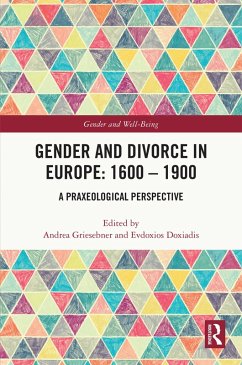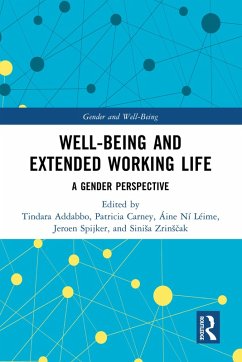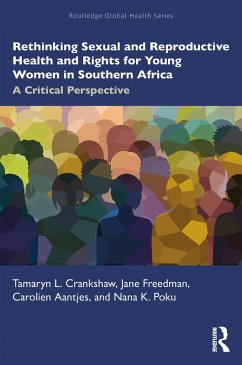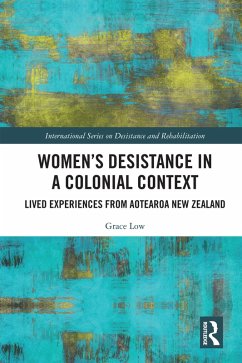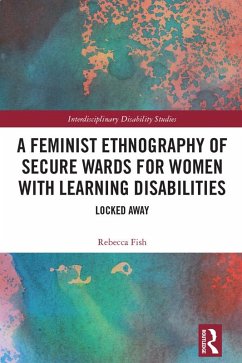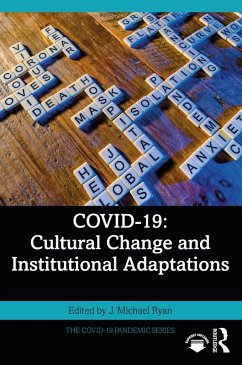
The Routledge International Handbook of Harmful Cultural Practices (eBook, ePUB)
Versandkostenfrei!
Sofort per Download lieferbar
46,95 €
inkl. MwSt.
Weitere Ausgaben:

PAYBACK Punkte
23 °P sammeln!
This handbook looks at cross-cultural work on harmful cultural practices considered gendered forms of abuse of women. These include female genital mutilation (FGM), virginity testing, hymenoplasty, and genital cosmetic surgery. Bringing together comparative perspectives, intersectionality, and interdisciplinarity, it uses feminist methodology and mixed methods, with ethnography of central importance, to provide holistic, grounded theorizing within a framework of transformative research. Taking female genital mutilation, a topical, contested practice, and making it a heuristic reference for rel...
This handbook looks at cross-cultural work on harmful cultural practices considered gendered forms of abuse of women. These include female genital mutilation (FGM), virginity testing, hymenoplasty, and genital cosmetic surgery.
Bringing together comparative perspectives, intersectionality, and interdisciplinarity, it uses feminist methodology and mixed methods, with ethnography of central importance, to provide holistic, grounded theorizing within a framework of transformative research. Taking female genital mutilation, a topical, contested practice, and making it a heuristic reference for related procedures makes the case for global action based on understanding the complexity of harmful cultural practices that are contextually differentiated and experienced in intersectional ways. But because this phenomenon is enshrouded in matters of sensitivity and prejudice, narratives of suffering are muted and even suppressed, are dismissed as indigenous ritual, or become ammunition for racist organizing. Such conflicted and often opaque debates obstruct clear vision of the scale of both problem and solution.
Divided into six parts:
. Discourses and Epistemological Fault Lines
. FGM and Related Patriarchal Inscriptions
. Gender and Genitalia
. Female Bodies and Body Politics: Economics, Law, Medicine, Public Health, and Human Rights
. Placing Engagement, Innovation, Impact, Care
. Words and Texts to Shatter Silence
Comprised of 24 newly written chapters from experts around the world, this book will be of interest to scholars and students of nursing, social work, and allied health more broadly, as well as sociology, gender studies, and postcolonial studies.
Bringing together comparative perspectives, intersectionality, and interdisciplinarity, it uses feminist methodology and mixed methods, with ethnography of central importance, to provide holistic, grounded theorizing within a framework of transformative research. Taking female genital mutilation, a topical, contested practice, and making it a heuristic reference for related procedures makes the case for global action based on understanding the complexity of harmful cultural practices that are contextually differentiated and experienced in intersectional ways. But because this phenomenon is enshrouded in matters of sensitivity and prejudice, narratives of suffering are muted and even suppressed, are dismissed as indigenous ritual, or become ammunition for racist organizing. Such conflicted and often opaque debates obstruct clear vision of the scale of both problem and solution.
Divided into six parts:
. Discourses and Epistemological Fault Lines
. FGM and Related Patriarchal Inscriptions
. Gender and Genitalia
. Female Bodies and Body Politics: Economics, Law, Medicine, Public Health, and Human Rights
. Placing Engagement, Innovation, Impact, Care
. Words and Texts to Shatter Silence
Comprised of 24 newly written chapters from experts around the world, this book will be of interest to scholars and students of nursing, social work, and allied health more broadly, as well as sociology, gender studies, and postcolonial studies.
Dieser Download kann aus rechtlichen Gründen nur mit Rechnungsadresse in A, B, BG, CY, CZ, D, DK, EW, E, FIN, F, GR, HR, H, IRL, I, LT, L, LR, M, NL, PL, P, R, S, SLO, SK ausgeliefert werden.






